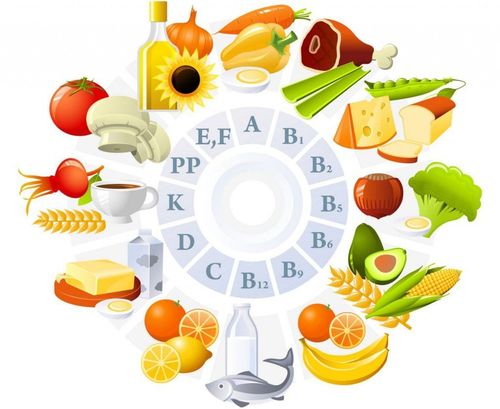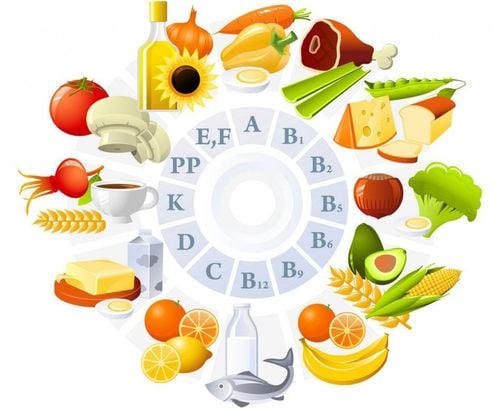This is an automatically translated article.
Research shows that micronutrient supplementation has a negligible benefit on linear growth. Specifically, zinc and iron had a modest effect on linear growth in children with deficiency. Whereas vitamin A had no significant effect on linear growth.
1. Overview
Linear retardation is common among children from low socioeconomic groups in developing countries. This slowdown begins when babies are in the womb and lasts for life after birth, most prominently during the first 18-24 months. The etiology of linear growth reduction is thought to be related to several factors such as: malnutrition in pregnant mothers and poor quality diets in infants, frequent infections and psychological environment. Poor social status,...
Prenatal micronutrient deficiencies can lead to slower linear fetal growth in the postpartum period or lead to low nutrient reserves at birth. Infants' low micronutrient intake may be due to poor quality breast milk due to nutritional deficiencies and may also be due to inadequate complementary feeding in the postpartum period. Poor diets are often deficient in nutrients such as iron, calcium, zinc and vitamin A. Infants and young children in developing countries suffer from frequent infections, leading to decreased appetite and malabsorption. , loss of nutrients, problems with metabolism and other metabolic disorders,... all contribute to a decrease in linear growth.
The micronutrients involved in linear growth are all essential and have been identified by WHO including iodine, zinc, selenium, copper, lead, chromium, vitamin A and calcium. Continually being deficient in these micronutrients at a certain threshold will result in the loss of one or more important physiological functions.
2. Individual micronutrient supplementation testing
2.1. Zinc
Zinc deficiency is thought to be associated with high fiber and low protein diets, as well as in children with helminthic diseases. Initial tests showed no improvement in linear growth after zinc supplementation. This may be due to the short duration of supplementation and the impeded absorption of zinc due to inadequate dietary intake. However, some recent studies have shown improved linear growth after zinc supplementation. Overall, zinc supplementation resulted in an increase in the size of stunted children, but the numbers were not overwhelming. At present, it can only be concluded that zinc is an important micronutrient with linear growth effects in zinc-deficient subjects.
2.2. Vitamin A
The association between decreased linear growth and clinical signs of vitamin A deficiency (night blindness, conjunctivitis) prompted trials examining the effects of vitamin A supplementation on growth linear. However, no linear growth benefit was found with vitamin A supplementation in both men and women. Only a few studies have shown a benefit, but not significantly. To date, there is insufficient evidence to confirm that regular vitamin A supplementation has a linear effect on growth. So scientists can't draw any conclusions about the effects of vitamin A in children with deficiency.

Thử nghiệm bổ sung vi chất dinh dưỡng cụ thể là vitamin A cho trẻ
2.3. Iron
There are several small studies that have examined the effects of iron supplementation on linear growth in young children, but the results have been inconsistent. Some studies show that 80% of children with anemia receive a significant linear growth benefit after iron supplementation. However, there are also studies that have reported negative effects in anemic children and beneficial effects in children without anemia. No studies in anemic but non-iron-deficient children have reported beneficial effects of iron supplementation. On the contrary, there is some suggestion that growth could be adversely affected under these circumstances. In conclusion, iron supplementation only had a significant effect on linear growth in anemic children. Adverse effects of iron supplementation in children without anemia need further confirmation.
2.4. Iodine
Observational studies show that iodine deficiency is associated with linear growth retardation and intellectual development in children. However, none of the studies showed that iodine supplementation with linear growth. In general, health professionals still recommend iodized salt for people with iodine deficiency.
2.5. Calcium, Phosphorus and Magnesium
Evidence from animal studies and observations in children suggests that inadequate dietary calcium may contribute to linear growth retardation. One study in children aged 3 to 6 years who received 65 mg of calcium per day for 4 to 5 months increased their height by 0.36 cm or more. Similarly, at the age of 6-12, children increased in height by 0.53 cm after being supplemented with 130 mg of calcium/day for 3 months. However, a recent review concluded that calcium supplementation alone or in combination with phosphorus did not increase the height or weight of children in the developing world (with calcium low to moderate consumption).
Malnourished children have been reported to have low magnesium levels. When magnesium was given daily for a period of about a month, the child's rate of recovery from malnutrition accelerated after two weeks. However, more trials are needed to prove whether malnourished children grow linearly faster with magnesium supplements.

Thử nghiệm bổ sung vi chất dinh dưỡng cụ thể là Iốt cho trẻ
3. Multi-micronutrient supplementation for linear growth
Few researchers have examined the effects of multi-micronutrient supplementation on linear growth, nor have compared multi- and single-nutrient supplementation. Therefore, it cannot be concluded that the intake of more micronutrients will have a greater impact on the linear growth and intellectual development of children.
Among the individual micronutrients, there is evidence that zinc supplementation has a modest impact on linear growth in preschool and school-age children. The beneficial effect of iron supplementation on linear growth seems to occur only in anemic children. On the other hand, a significant effect of vitamin A on linear growth in children is unlikely.
In addition to zinc, parents also need to supplement their children with other important vitamins and minerals such as lysine, chromium, B vitamins,... errands.
For more nutritional knowledge and child care for each age, parents should regularly visit the website vimec.com and make an appointment with the leading doctors, pediatric and nutrition experts of the National General Hospital. Vinmec when needing advice on children's health.
References: cambridge.org, researchgate.net, thelancet.com













